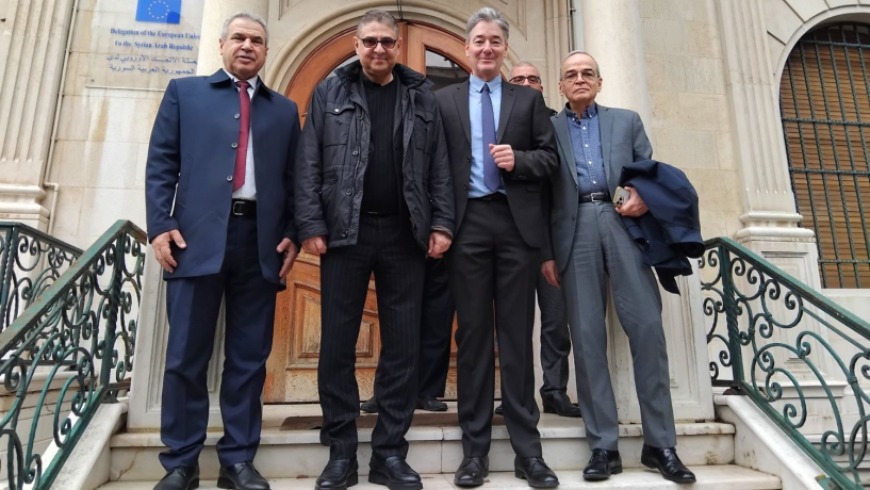The leadership of the National Coalition for Revolutionary and Opposition Forces (SOC) and the Syrian Negotiating Commission (SNC) has finally returned to Syria. However, their return was not through Umayyad Square, where Syrians once gathered to celebrate the regime’s downfall, nor through the vibrant streets of Damascus or its historic gates. Instead, they descended the steps of the European Union mission in Damascus, accompanied by Ambassador Mikael Unmacht, radiating pride and smiles.
This symbolic moment epitomizes a coalition that, for years, distanced itself from the Syrian people and placed its trust in foreign ambassadors. The critical questions now are: why have they returned, and what vision do they bring? Do they still believe Syria’s solution lies in the hands of foreign diplomats, hoping that international powers will impose a political equation aligned with their aspirations?
December 8, a historic turning point, marked not only the fall of the criminal regime but also the collapse of the opposition as we knew it. Syria has entered a new era, moving beyond the old framework of regime and opposition. This is the birth of a nation—a time for Syrians to forge a new political framework, grounded in an inclusive national dialogue and a carefully crafted constitution.
A Constitution Reflecting National Consensus
A constitution is not merely a legal document; it must embody the shared values, needs, and aspirations of society. Constitution-making is a national task, entrusted to an elected constituent body representing all societal groups. This body must operate based on agreements reached during a comprehensive National Dialogue Conference, involving genuine representatives of Syria’s political, economic, and social interests.
Key issues must be addressed before drafting begins:
- Freedom: Define its limits and ensure individual liberties coexist harmoniously with the collective will. Establish legal frameworks protecting freedom across political, social, and cultural spheres while limiting state interference in private lives.
- Private Property and Reconstruction: Determine the role and limits of private property, balancing its preservation with the demands of large-scale reconstruction.
- Economic System: Will Syria adopt a fully liberal economy, or will the state play a regulatory role? A clear stance on social policies, education, healthcare, and unemployment insurance is crucial. Declaring a free-market economy while guaranteeing state-provided services would create contradictions. Syrians must have the right to define their economic system in a way that reflects the nation’s post-war realities.
- Equality: Clarify its moral and legal dimensions to ensure democratic principles are upheld without undermining societal cohesion.
- Religion: Discuss whether the role of religion in personal status laws will remain unchanged, expand, or diminish.
A Vision for the Future
Drafting constitutional texts without a comprehensive understanding of societal realities risks creating a document that disrupts governance and hinders Syria’s rebuilding. Statements claiming constitution-drafting is a straightforward technical process undermine its profound societal significance.
For Syria to move forward, the constitution must be rooted in the lived realities and shared aspirations of its people. This foundational document must guide the nation’s rebirth, fostering justice, inclusivity, and prosperity for all Syrians. Only then can it serve as the cornerstone of a united and hopeful future.
Mohammad Sabra is the former chief opposition negotiator during the Geneva talks.
This article was translated and edited by The Syrian Observer. The Syrian Observer has not verified the content of this story. Responsibility for the information and views set out in this article lies entirely with the author.


